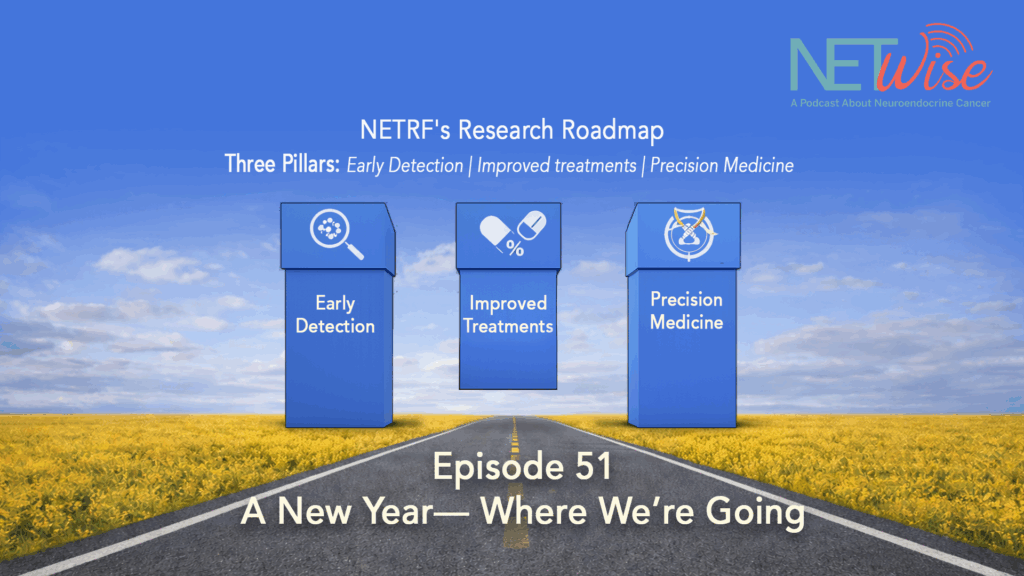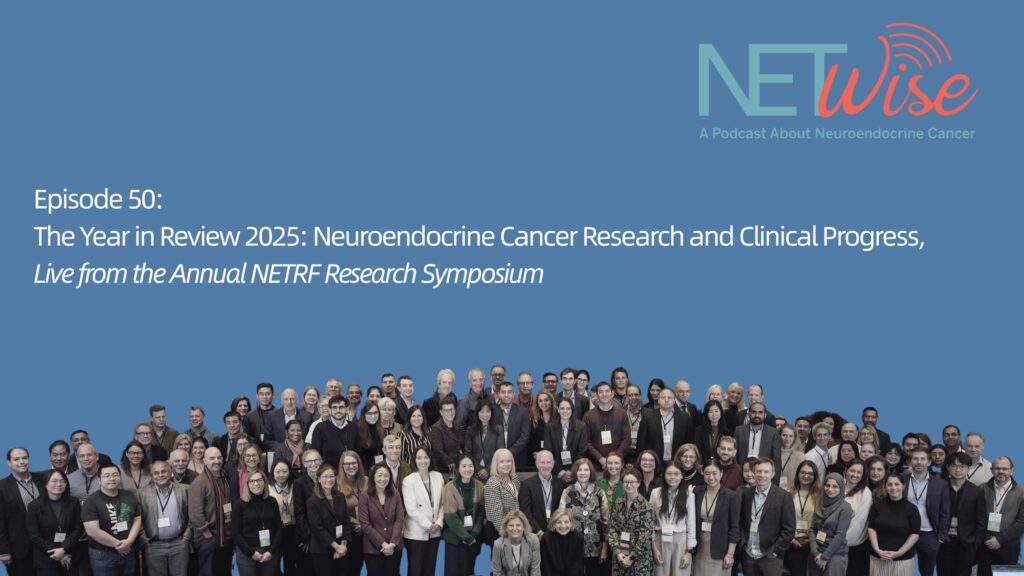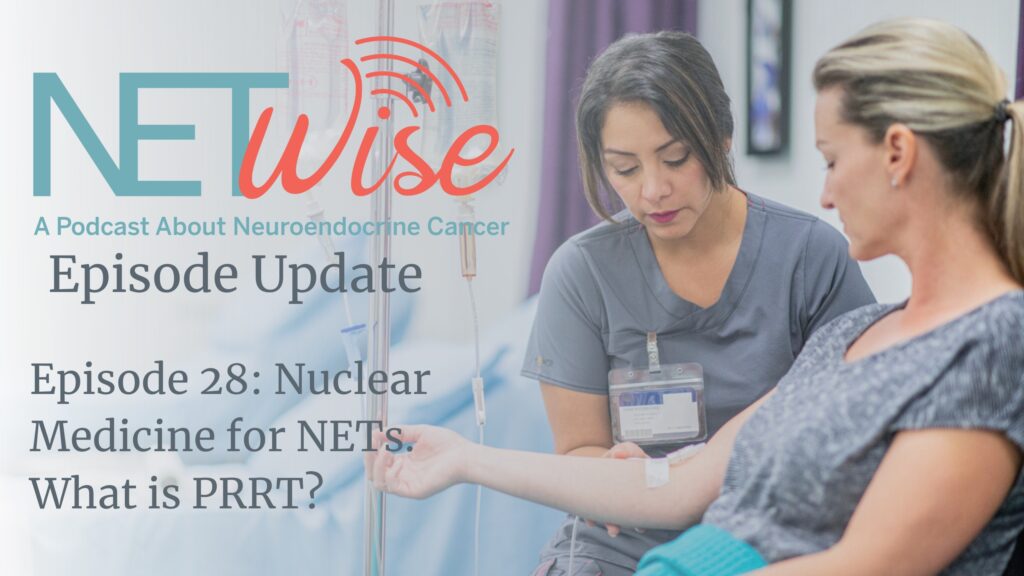
As we turn the page on a new year, the neuroendocrine cancer community isn’t just reflecting on progress—we’re looking ahead. This episode of NETWise explores...

Research has been at the heart of NETRF’s mission for 20 years—and patients are the reason that work matters. Every study we fund is designed...

If you’re new to this show, welcome. You’re in the right place. Maybe you’ve been recently diagnosed, or maybe you’re a longtime patient. Maybe someone...

In this episode, we’re talking in depth about one of the most exciting and widely discussed treatments for NETs: PRRT. This is a revised version...

We hear a lot about the need for diversity and inclusion in health care, and we know there is a need for more diversity in...

This is an updated NETWise episode. A special thank you to Dr. Aman Chauhan for his expert knowledge and help with this special NETWise update....

This is a revised version of an episode that first aired in December of 2020, where we focused on diagnosis and treatment of NETs that...



In this episode, we’re talking in depth about one of the most exciting and widely discussed treatments for NETs: PRRT. This is a revised version...

We hear a lot about the need for diversity and inclusion in health care, and we know there is a need for more diversity in...

This is an updated NETWise episode. A special thank you to Dr. Aman Chauhan for his expert knowledge and help with this special NETWise update....

This is a revised version of an episode that first aired in December of 2020, where we focused on diagnosis and treatment of NETs that...


Register for podcast notifications by email.
Medical Disclaimer: This podcast is not intended as and shall not be relied upon as medical advice. The Neuroendocrine Tumor Research Foundation encourages all users to discuss any information found here with their oncologist, physician, and/or appropriate qualified health professional. Listening to this podcast does not constitute a patient-physician relationship. The Neuroendocrine Tumor Research Foundation does not represent that any information provided here should supplant the reasoned, informed advice of a patient’s oncologist, physician, or appropriate qualified health professional.